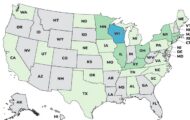With one month to go before the end of the year, there have already been 11 Listeria recalls for enoki mushrooms, making them the food most recalled for bacterial contamination in 2022. It wasn’t a close contest. Any commodity vying for the distant second-place finish -cheese, leafy greens, ground beef, has had fewer than half as many recalls so far this year.
And there’s a decent chance that, before the year’s end, there will be a 12th enoki mushroom recall. That’s because no recall has been issued in connection with an ongoing enoki mushroom Listeria outbreak.

Two years ago, a Listeria outbreak linked to enoki mushrooms from Korea sickened 36 people killing four of them. That outbreak was connected to three recalls and the origin of each one we’ve seen since.
After the deadly 2020 outbreak, the U.S. Food and Drug Administration (FDA) and state agencies stepped up testing to drill down on the problem. The result yielded six recalls last year and this year’s bumper crop of 11.
Listeria is a bacteria found in soil, water, decaying plant matter, and other places in nature. It grows well in cool, damp environments. The substrate and the high-humidity environment required to grow mushrooms provide ideal conditions for bacterial growth.
All of the enoki mushrooms recalled since 2020 originated from three countries -Korea, China, and Taiwan. In July, the FDA announced a countrywide import alert on all enoki mushrooms from Korea, essentially banning them. The action was taken after samples from numerous shipments tested positive for Listeria and genetic tests showed the same Listeria strain was found in multiple shipments over a period of time indicating a “resident pathogen” in mushroom operations in that country.
That’s why it’s somewhat of a mystery as to how enoki mushrooms from Korea were the subject of a product recall two weeks ago. Of this year’s 11 recalls, 10 were issued before the end of April.
About 1,600 Americans contract Listeria infections annually. More than 90 percent of cases require hospitalization and about 20 percent are fatal. Pregnant women, who can suffer miscarriage or stillbirth, account for about one-sixth of all cases.
Symptoms of a Listeria infection, called listeriosis, include high fever, severe headache, stiff neck, other muscle stiffness, confusion, loss of balance, and convulsions. These symptoms can develop within 24 hours of exposure to contaminated food. But sometimes they can take as long as 70 days to develop.





